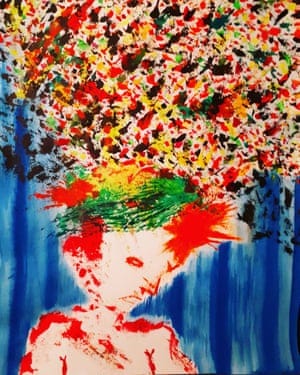mental health is hard
... and it should be
Last week, my workers’ union reached a new agreement.
The settlement boasted “enhanced mental health supports” with nearly double the amount for psychological services. The do-good intention is there, yet I can help but feel like this is like putting a band-aid on a freshly severed arm.
We aren’t in a global mental health crisis because of a lack of mental health support, but because we are becoming an increasingly sick society. And like all the shoulder pads and helmets in the world won’t protect you from a fall off the top of the CN Tower, all the mental health support you can get your hands on won’t fix the cause of our societal sickness.
I’m not here to say I have all the solutions. But I can see the problems.
We spend more of our lives with coworkers than with our family. Rather than coming up for a breath of fresh air, we fill the cracks in our day with social media scrolling. We don’t move our bodies enough or spend enough time under the sky and the sun. We don’t belong to meaningful communities. We’ve made ourselves the most important thing in our lives, and so we self-centeredly worship and prioritize ourselves, rather than being of service to others.
Yet instead of seeking real solutions, we put our hands to the sky and pray to pills and psychotherapy. I don’t mean to bash those things – they are essential for some and can be helpful to others.
But while these tools can be catalysts for positive change, they will never be enough to make sustainable improvements to our lives. Popping pills and attending therapy while changing nothing else won’t fix our problems. Mental well-being can’t be outsourced to a prescription or psychologist.
I think the popularization of pills and therapy as ways to wellbeing stems from our desire to seek the easiest path forward while forgoing any real accountability.
These symptoms stem from greater societal trends of instant gratification, inability to commit, and a lack of willingness to bear responsibility.
I can’t walk down the street to my gym without nearly being run over by fifty different e-bike Uber Eats drivers. Nothing screams laziness, loss of connection, outsourcing of responsibility, and immediate gratification more than the store-to-door delivery epidemic.
And our collective lack of willingness to commitment — to people, places, and communities — is greater than it’s ever been. We all seem to fear getting tied down, when paradoxically, tying ourselves to people, places, and things is the only path to true liberation and freedom.
The solution to these problems will not come from some grand societal shift, but rather from small individual choices.
As individuals, we must decide to seek responsibility and savour solutions that take time. To tie ourselves to someone and some place. To stop scrolling and go to sleep. To wake up early and find ways to move our bodies and nurture our minds. To spend less time under a roof and more under the sky. To go places Wi-Fi routers won’t reach. To entrench ourselves in and contribute to a community. To prioritize an authentic and enjoyable life over status and money.
Real problems are hard. And though this isn’t a popular narrative in today’s quick-fix culture, real solutions are hard too.
A big part of mental well-being comes down to choosing your hard.
If you choose the easy fix, you’ll have hard problems that never go away. But if you opt for hard, temporarily uncomfortable solutions, the rest of your life will feel easy and enjoyable.
With love,
Subscribe for new essays every month:






Love the title. The numerous Uber eats bikers are a bang on example of our preference for easy. Easy life, easy money, easy friends, easy food. But easy is soft, easy is weak, easy is effortless. Do something hard. It’s good for your mental health. Just ask the Uber Eats bikers.
Love this Jack!!! You are so right!!! And with our constant commitment to and infatuation with screen time, and especially social media, many are less and less prone to get up and do something that requires more from our bodies and our minds. Such a detriment to our overall health in every way, and a damn shame to our humankind, our communities and beyond. My Nan and your Great Nan always said, “if it is difficult, it is worth doing, difficult things are worth doing”!!! Also, love dad’s comment on asking the Uber Eats Cyclists!!!